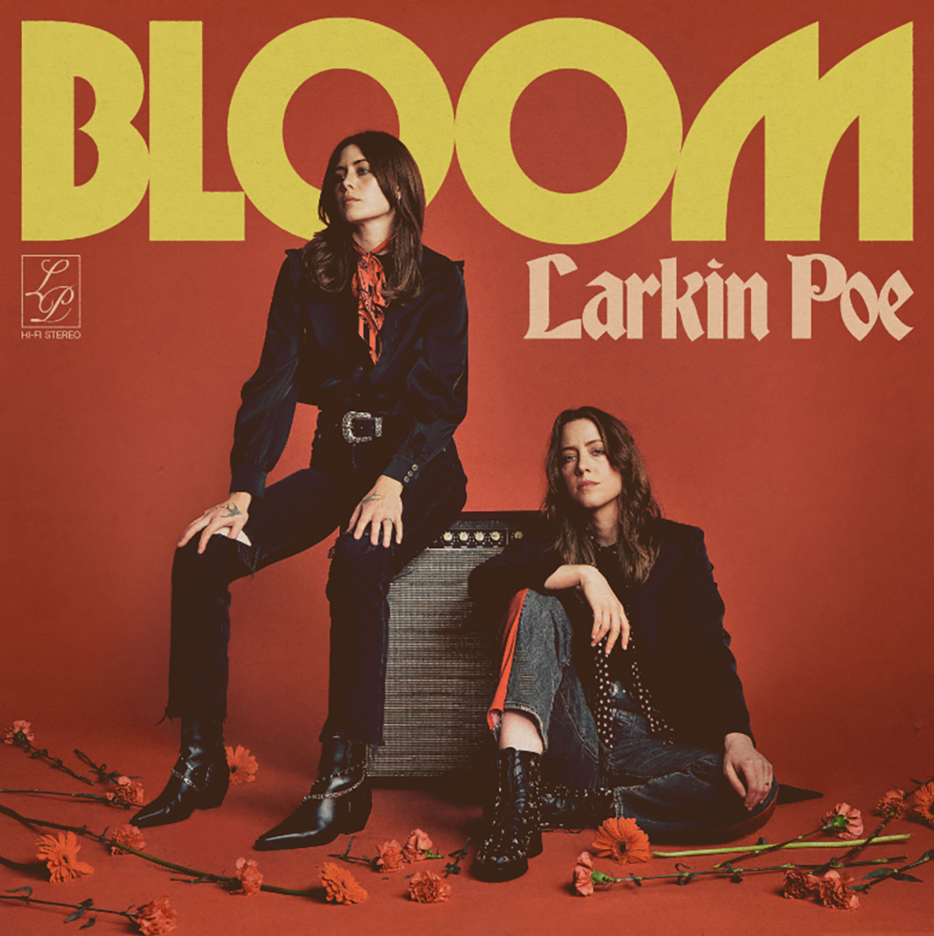2025 marks fifteen years since sisters Rebecca and Megan Lovell formed Larkin Poe following the dissolution of the Lovell Sisters, their previous band with elder sister Jessica. Over the years, the duo’s electrifying blend of southern rock, country, blues, and Americana has cemented their status as one of the most compelling acts in modern roots music.
Their sound, steeped in the culture of their hometown, Atlanta, Georgia, gained international attention early on, being named “Best Discovery of Glastonbury 2014.”
Larkin Poe’s trajectory hit another milestone with their previous LP, Blood Harmony, which won the 2024 Grammy Award for Best Contemporary Blues Album. Now, with Bloom, the sisters take a more introspective and philosophical approach, using their finely honed soundscape to explore vulnerability and deeper truths. Adding to the intrigue is their familial connection to nineteenth-century poet Edgar Allan Poe, which adds a subtle layer of expectation and literary resonance to their work.
The album opens with “Mockingbird,” a track that sets the tone for Bloom. The song captures a relatable tension: the struggle to conform to expectations, as Rebecca sings about trying “to fit into a picture I didn’t want to take.” With lines like “singing a thousand songs that don’t belong to me just to see who’s singing,” the lyrics explore identity with sensitivity and defiance, all against an upbeat backdrop of contemporary rock and blues, sidestepping the melancholy that might typically accompany such themes.
From introspection comes empowerment. On “Little Bit,” the sisters reflect on their growth, questioning societal pressures with lines like “Why is it new is always better?” and declaring their pride in authenticity: “not ashamed of what I’m not.” Midway through the album, they address gender dynamics in “If God Is a Woman,” flipping traditional narratives by musing, “the devil is (a woman) too.” This exploration continues on “Pearls,” a standout track with a simple yet powerful message about respect: “just shake my hand the way you’d shake another man’s.”
Lyrically, Bloom balances hard truths with encouragement. On “Fool Outta Me,” the sisters grapple with cynicism, singing, “I don’t wanna believe… the world will only break you.” In contrast, the tender “You Are the River” offers reassurance: “look in the mirror, you are the sign that it’s gonna be alright.” The Lovells’ ability to juxtapose struggle and hope adds emotional depth to the record.
Musically, Bloom stays rooted in Larkin Poe’s signature blend of southern rock, blues, and Americana. The blues shine brightest on “Bluephoria,” which nods to the genre’s legends, particularly Furry Lewis, while the high-octane “Nowhere Fast” injects a sense of fiery pride, with the sisters declaring, “from east to west, Georgia does it the best.” The closing track, “Bloom Again,” takes a surprising yet welcome turn. This love song, performed in the style of the Everly Brothers, is a nostalgic and tender departure that wraps the album on a beautifully poignant note.
Larkin Poe have long been known for creating music that stirs the soul, but Bloom elevates their artistry. It pairs their signature sound with some of their most relatable and introspective lyrics to date, offering meaningful music and a mirror for humanity. This album is a testament to their growth as musicians and storytellers—and an invitation to listeners to bloom alongside them.





Be the first to comment